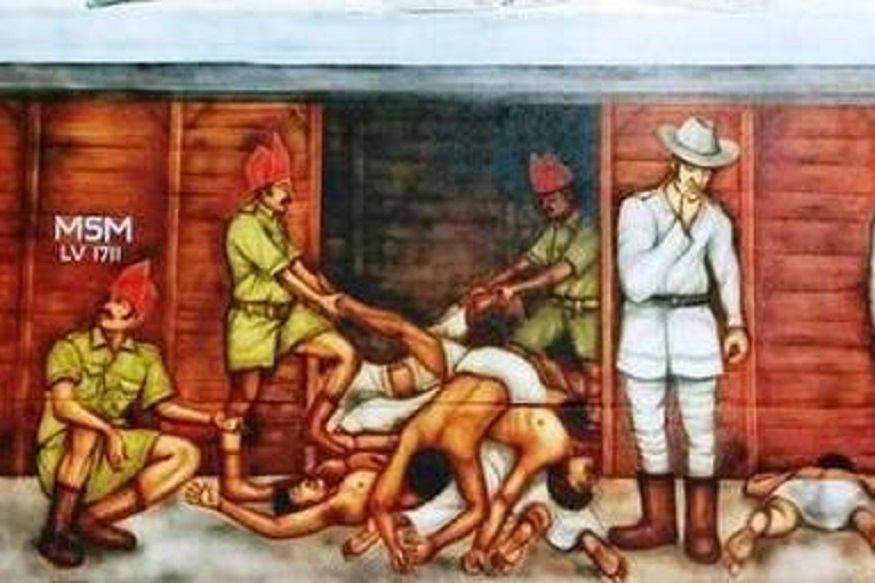The Railways has taken a firm stand and has prevented distortion of history by removing a painting depicting the 1921 wagon tragedy mural at the Tirur station in Kerala. As a part of the ongoing beautification process, the wall near the ticket counter at Tirur had been painted to depict the Wagon tragedy, when 90 Muslim rebels during the Mapilla (Muslim) rebellion were arrested by the British and sent to a Coimbatore prison in a windowless freight wagon. 60 of the rebels died in transit due to suffocation. The BJP strongly protested to this painting. It was argued that the painting was highly objectionable and would hurt Hindu sentiments. The Mapilla riots actually symbolise some of the most indescribable excesses that were committed upon the Hindus by the rioters. Many of the Hindus were killed mercilessly and countless rapes were committed upon Hindu women.
The Railways while removing the mural painting made it clear that the mural depicting death, tragedy and murder was inappropriate and did not adhere to the guidelines of the Railways Board for beautification of stations with murals representing the culture of the region.
The BJP Tirur Mandal committee president K P Pradeep had said, “Pictures of certain persons have been put up, who are been widely considered controversial. Such persons had been involved in massacre of Hindus during the Mappila riot. It is highly objectionable and outrages the sentiments of Hindus. If such paintings are allowed, it would shatter the secular fabric of the region. Hence, we complained to railway authorities.” Indeed, had the painting not been removed it would have been a blatant distortion of history as the riots which signify deep hatred against Hindus and a massacre of the worst kind would have been unnecessarily glorified.
The accounts of the Moplah (Mallipa) riots are horrifying and go on to show the brutality of those who perpetrated some of the most heinous crimes against the Hindu victims. Rapes, murders and conversions were used blatantly by the rioters as weapons to clamp down on the Hindu community. Nearly, 10,000 Hindus were killed in the frightening massacre, countless number of rapes were committed and around 1,00,000 innocent Hindus were rendered refugees. Commenting about the horrendous riots, B.R. Ambedkar had said, “The blood-curdling atrocities committed by the Moplas in Malabar against the Hindus were indescribable. All over Southern India, a wave of horrified feeling had spread among the Hindus of every shade of opinion, which was intensified when certain Khilafat leaders were so misguided as to pass resolutions of congratulations to the Moplas on the brave fight they were conducting for the sake of religion.” These riots are often described by the leftist liberals as a rebellion against the British rulers and “Hindu landlords” and an important step in the freedom struggle. One cannot help but feel agonised at such insensitive view and concocted view of the riots. It does not come as a surprise that Kerala chief minister Vijayan has indulged in petty politics over this issue as well and has gone on to claim that the Railways’s decision amounts to insulting an important chapter in the freedom struggle. It is beyond comprehension how the horrifying Moplah riots which signify inhuman hatred towards the Hindus could form an important chapter in the freedom struggle.
What must be kept in mind is that these riots were purely a show of dominance and authority in the region. The Hindus were unnecessarily crushed in this process of mindless violence. There was no provocation of any kind from the victims who were ruthlessly and inhumanely murdered or brutalised. The mural which had been painted a the Tirur Railway station would not only have amounted to a distortion of the history but would have also hurt the sentiments of the Hindus living in the region by rubbing salt on their injuries. The Railways has taken the correct step by keeping their sentiments in mind for which it needs to be commended!
